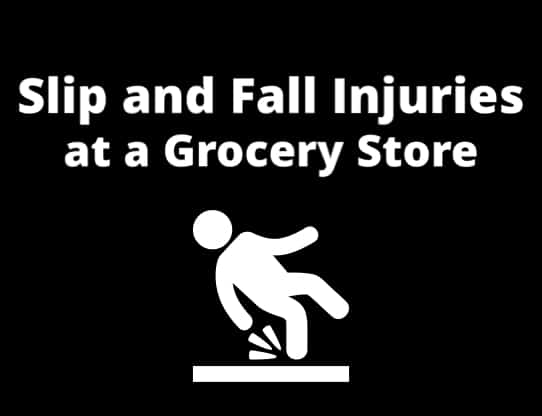Written By Chris Dolan and Cristina Garcia
This week’s question comes from Rosa L. in the Mission District, who asks: Last weekend I was grocery shopping when suddenly I felt my left leg slip from under me. The next thing I knew, I was on the ground. Almost immediately, I felt a sharp, throbbing pain in my leg. I attempted to stand up but realized something was seriously wrong with my leg. I’m not sure who called the ambulance, but eventually, the paramedics placed me on a gurney and transported me to the hospital. At the hospital, I underwent X-rays and was informed that I had broken my leg and would require surgery. Thankfully, while waiting for the paramedics, one of the shoppers introduced herself and gave me her phone number. Later, she sent me photos of the spilled liquid and the aisle where I fell. I know that after a car accident, typically, the people involved exchange phone numbers, and there is a police report. However, I have never slipped and fell at a store before and do not know what to do next.
Dear Rosa,
I am sorry that you are dealing with this situation. After a slip and fall, some steps are important to take if you seek compensation for your injury:
- First, call the store and ask an employee to create an incident report. Also, provide them with the facts of the incident and specify the location in the store where you fell. Understandably, you may not be able to go into the store to submit an incident report due to your injury.
- Second, it is essential to preserve as much evidence as possible. Most grocery stores have video surveillance throughout the store. You should call the store manager and ask that they preserve all surveillance video from the incident date, as many places delete their surveillance video or record over old videos after a few days.
Slip and fall cases are complex and can be challenging when the injured person does not have evidence of a slippery substance on the ground or cannot identify the substance that caused them to slip and fall. It is great that one of the shoppers who witnessed the incident took photos of the liquid on the floor. The photos will assist you in proving that there were no warning signs alerting shoppers that the floor was wet.
Once you file a personal injury claim, the defendant will likely ask for an opportunity to inspect your shoes and clothing from the date of the incident. The reason for doing this is that the grocery store will likely try to argue that your shoe caused your slip-and-fall. For example, the grocery store may contend that the sole of your shoe was worn down. Therefore, you most likely slipped due to the lack of traction in your shoes. Although your instinct may be to get rid of the shoes or clothes you were wearing on the date of the incident, it is important that you keep those items.
Another step that you can take to preserve evidence is taking photographs of your injuries. This may be difficult to do yourself while you are at the hospital. However, you can ask friends and family to photograph your leg’s bruising and swelling. Once you are discharged, you will also want to keep a copy of your discharge papers, as they will briefly describe your injuries. During your recovery period, you should also keep a copy of receipts for the expenses you have incurred due to the incident. Those expenses can include medication and other medical devices such as crutches.
Slip and fall cases are complex cases. Therefore, we recommend that you retain an experienced attorney to assist you in navigating the process and obtaining the compensation you deserve.
For more information on Dolan Law Firm, you can go to dolanlawfirm.com.
To read more articles on our blog, visit us at dolanlawfirm.com/blog/.
Christopher B. Dolan is the owner of the Dolan Law Firm. Cristina Garcia is a senior associate attorney in our Redondo Beach office. We serve clients throughout the San Francisco Bay Area andCalifornia from our offices in San Francisco, Oakland, and Los Angeles. Email questions and topics for future articles to: help@dolanlawfirm.com. Each situation is different, and this
column does not constitute legal advice. We recommend consulting with an experienced trial attorney to understand your rights fully.










